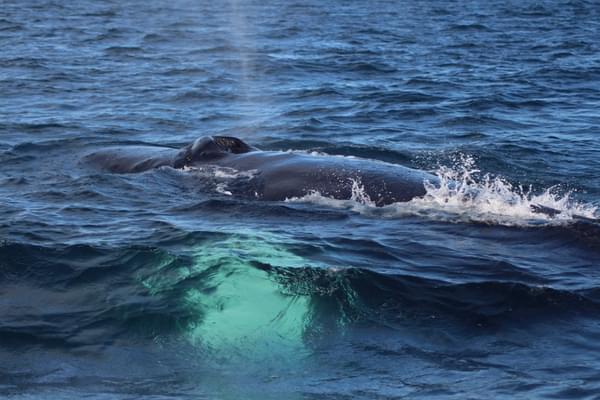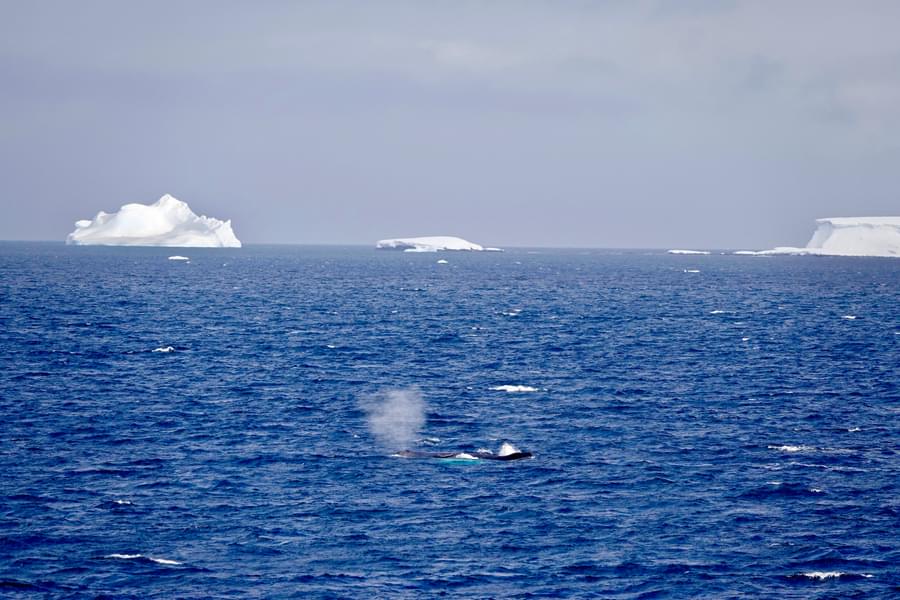Antarctica’s smallest creatures are sending us a loud message and, at last, someone on the UK high street has heard it.
In 1982, the world set up CCAMLR - the Commission for the Conservation of Antarctic Marine Living Resources - because it understood a simple truth: if you don’t protect Antarctic krill, you don’t protect Antarctica. Krill are the paperclip-sized crustaceans that power the entire Southern Ocean food web. Penguins, seals, humpbacks, minkes, even recovering blue whale populations depend on them. Krill even help lock away carbon in the deep ocean. But four decades on, that founding vision is being tested by faster, bigger, more efficient super-trawlers and by a management system that is still running like something out of the US goldrush.
This year that “race” hit a dangerous milestone. The krill fishery around the Antarctic Peninsula, the biological heart of the continent - hit its 620,000-tonne catch limit and was forced to close early on 01 August, 2025. That isn’t success; it’s a red flag. When several vast factory vessels pile into the same area, at the same time, in the same penguin-and-whale feeding grounds, the ocean has no room to breathe. Since 2020, at least six whales have been killed in lethal interactions with krill ships in these waters, including two involving the Chilean vessel Antarctic Endeavour. At the very moment when whale populations are finally showing signs of recovery after the global whaling moratorium, we are dragging them back into a new, avoidable conflict over food.
All of this is happening while Antarctic sea ice is shrinking to record lows, which we know squeezes krill habitat even further. Climate pressure and industrial fishing pressure are now landing in the same place, at the same time.
So this is why Holland & Barrett’s announcement matters.
The UK health and wellbeing retailer has said it will fully exit krill products by April 2026, selling through remaining stock from January and helping customers shift to ocean-friendly omega-3 alternatives. It’s the first UK retailer to do this, and it didn’t happen in a vacuum - it follows years of at-sea documentation and campaigning by groups like Sea Shepherd, which have shown exactly what it looks like when whales and super-trawlers compete for the same krill. Holland & Barrett has looked at that reality and said: we’re out.
And where they have taken a lead, others must now follow - UK supermarkets, supplement brands, pet-food companies and aquaculture supply chains. If a mainstream retailer can walk away from Antarctic krill, no one can honestly claim it’s impossible.
For ORCA, whose mission is to protect whales, dolphins and porpoises in UK and European waters and beyond, the lesson is clear: science and monitoring only work if business and governments act on what the science is telling us. CCAMLR has the mandate to spread fishing effort, create long-promised marine protected areas and put precaution back at the centre. But until that gridlock breaks the market can help buy time for whales.
Antarctic krill are too important to be treated as just another ingredient. Holland & Barrett has shown that retailers can choose whales over supplements. Let’s make sure they’re the first of many.

ORCA's work to protect whales and dolphins has never been more important and to help safeguard these amazing animals for the future we need your help. Please support our work by donating at www.orca.org.uk/donate to help us create oceans alive with whales and dolphins

